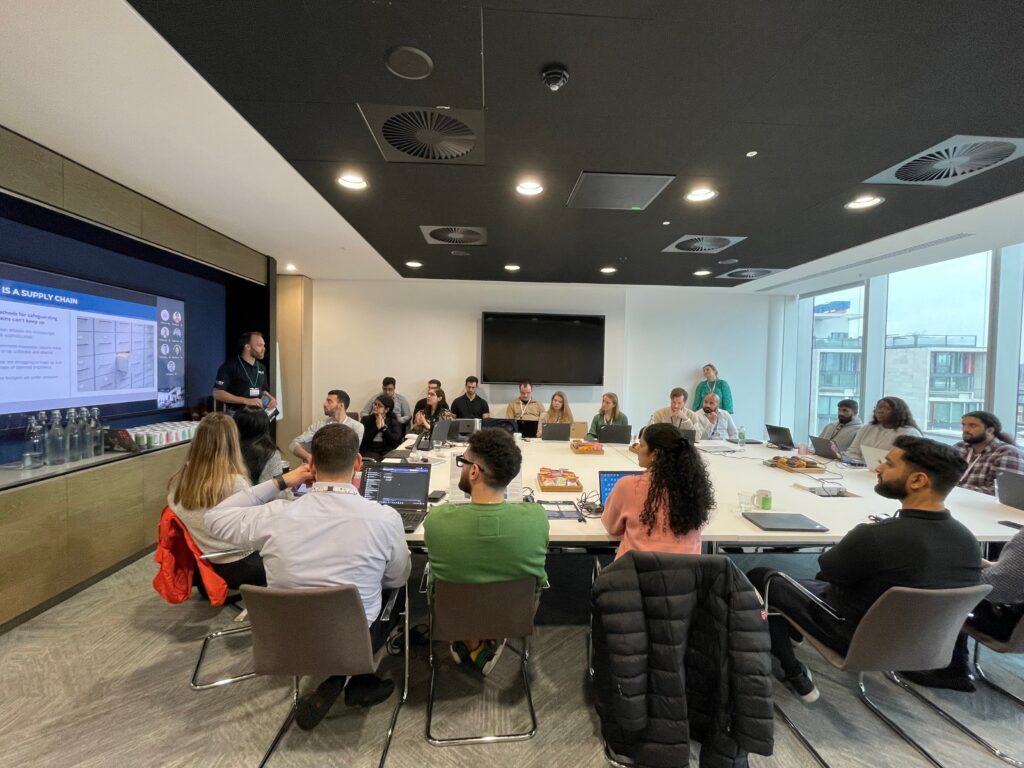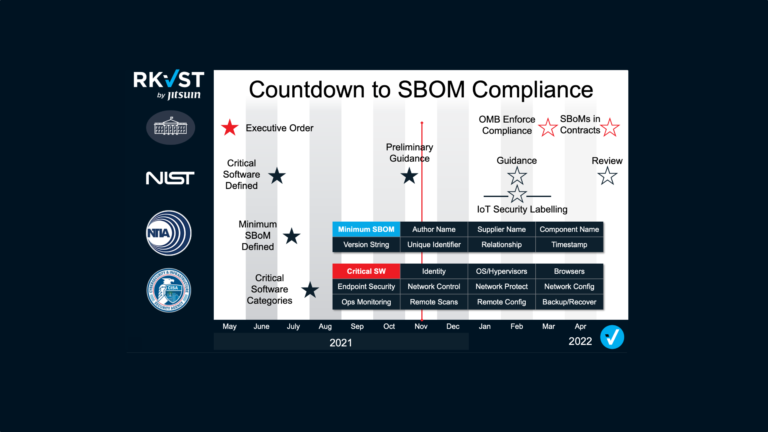How can blockchain solve supply chain visibility, auditability and compliance challenges?
PA Consulting recently joined forces with RKVST to host a Hackathon, looking to identify new and innovative propositions for digital supply chains. Could the teams of PA consultants and analysts identify opportunities to help their clients using RKVST technology?
Short answer: YES! Many of today’s business challenges can be addressed with a reliable evidence ledger. If you want the long answer, read on.
What happens in supply chains is often invisible, whether it’s tracking nuclear material, using software, or keeping track of carbon emissions. We don’t know who did what when, which leads to double-checking, second guessing, and risky decision making.
Distributed ledger technology (DLT) is one way of solving these supply chain issues, and it’s rapidly gaining traction for handling large volumes of transactional data while boosting transparency and integrity in the process. But blockchain is complicated.
That’s where the RKVST platform comes in. RKVST has done the hard work cutting through blockchain complexity and making it accessible to developers through simple APIs. By tracking events on physical and digital assets, RKVST offers visibility of data across supply chains and between supply chain partners, proves data provenance and trustworthiness of data, and provides auditable evidence you can rely on for critical decision making. It eliminates the costs, waste and mistakes related to manual or paper-based processes and ensures the right stakeholders get a reliable copy of critical information in near real time.
So, what did the different teams propose and how could the RKVST platform help? The propositions ranged across healthcare, communications, sustainability, energy and utilities.
The pandemic highlighted challenges in supplies of medical equipment such as ventilators and PPE. Would supply chain resilience be improved if information on stock levels, where those stocks happened to be stored, expiration dates, etc, could be shared between the different UK NHS Trusts, allowing collaboration, giving visibility and the ability to redeploy resources and the agility to respond rapidly? Where stock and devices need to be carefully checked for fitness for purpose, certification or maintenance such a reliable record could lead to a more agile provision of crucial equipment and parts.
The logging of communications data is a requirement in many industries, such as financial services or government, where there is a need for a permanent immutable record of electronic communications, emails, texts, voice calls, etc. Email servers and chat platforms keep records, of course, but these can easily be shredded or changed. By automatically logging communications metadata on a blockchain, that evidence is unalterable, and the RKVST platform also makes that evidence visible and shareable to assist with audits and compliance to cut down the time and costs of discovery.

In the energy sector there are continual high-frequency data exchanges between many different parties, with that data managed by lots of different organisations with different capabilities and interests: too many, and many too small, to handle with heavy bilateral contracts or service companies. What if that data could be recorded in one place and easily and fairly accessed? The data could be put to far more use than it is today: for instance to build better forecasting models, improve energy network resilience and test feasibility models. This could also be extended to smart metering and energy trading platforms to reduce costs of administration and really unleash the potential of smart energy at the local level.
The great clean-up is underway! Driven by regulation, pressure from investors and shifting customer preferences, companies are striving to reduce the impact of their activities on our planet. This quest for sustainability requires companies to rethink how their products are designed, engineered and produced. Evidence of sustainability is required at every stage of the supply chain and consumers want access to that information.
These are just some ideas that came from the hackathon, but all the identified cases involved large amounts of data, often siloed, needing to be shared with multiple different parties and the need for evidence. Visibility of that evidence. Evidence that could be relied on. Evidence of data provenance, evidence of data integrity, evidence that could be relied on for audits and compliance. And that’s where RKVST excels – in cross-border evidence exchange in regulated supply chains. Where borders might be between companies, countries or different computing environments, where evidence is required of who did what when, and where regulation requires some burden of proof to demonstrate adherence or compliance with market rules. The next step is to turn these propositions into reality!
If you’d like to learn more about RKVST’s work with PA Consulting, download the Digital Catapult DLT Field Lab Report which shows how RKVST introduced technology that improves the traceability of nuclear material data across its entire lifecycle.
Or try RKVST yourself for free!






